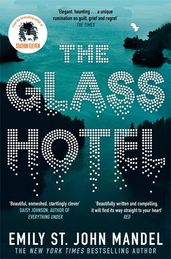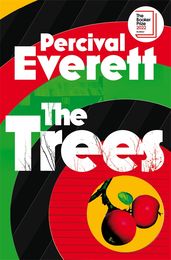Books you'll still be thinking about five years later
These reads will have a hold on you long after you've finished them, says our website editor.

I read a lot of books – about a hundred a year. Obviously I don't love everything I read, and can't recall every book without referring to my meticulously kept list. But. There are some books that have wedged themselves into my consciousness so effectively that I'm only ever a few days or weeks from thinking about them again. Here are five of them.
Among Friends
by Hal Ebbott
Amos and Emerson’s friendship has seemed unbreakable for over thirty years. Their wives and daughters are friends. They see each as often as they can. Then, over a long lazy weekend, an unanticipated event shatters their veneer and they’re forced to choose whom, and what, they love the most. An exploration of what lies beneath the creation of wealth and status, and what people will sacrifice in order to maintain both, this debut novel centres around a shocking act, and the frankly equally shocking responses to it. It's compelling and affecting, and I expect still to be angry at most of the characters for well over five years!
The Glass Hotel
by Emily St. John Mandel
I love and would recommend all of Emily St. John Mandel’s books, but The Glass Hotel is the one I can't stop thinking about, mainly because – and I mean this in the best possible way – it’s so strange. It begins in a remote hotel on the tip of Vancouver Island, where a woman called Vincent is wooed by a New York financier, and a hooded figure scrapes a provocative note into a window. We, and Vincent, are transported to a life of extreme wealth on the east coast, and then back to regular life again when a Ponzi scheme is exposed. And then she disappears from the deck of a container ship. The novel is an elegant exploration of guilt, grief and regret, and existing readers of Mandel will find much to enjoy, as passing allusions build into a suggestion that we’re reading a parallel universe of her earlier novel, Station Eleven. Indeed, the joy of being dazzled by Emily St. John Mandel’s ingenuity is one of the reasons the book is still on my mind years after reading it. But mainly it’s down to that indescribable strangeness, and how it felt to slip into that world every time I reopened the pages: like ice fracturing under a cobalt sky.
Empire of Pain
by Patrick Radden Keefe
Never would I have believed that the intricacies of the American pharmaceutical industry could be so gripping. This is the best non-fiction book I have ever read. It’s the meticulously researched and compellingly written history of the Sackler family, from the arrival of the family in Brooklyn, NYC, to their exposure as the manufacturers and marketeers of OxyContin, one of the catalysts of America’s opioid crisis, an epidemic of drug addiction that has killed nearly half a million people. It's a book that will stay on your mind because it's brilliant and you'll be telling everyone you meet that they need to read it, and because the crisis is ongoing. Until we stop hearing about people dying from an addiction to painkillers, or an accidental overdose, this book will, and should, still be on our minds.
The Trees
by Percival Everett
Percival Everett’s The Trees fearlessly confronts America’s violent past with wit and horror. Set initially in the town of Money, Mississippi and then across the US, the novel follows a murder investigation turned journey into America’s soul. Someone is killing people across America. At each crime scene, detectives find both a new victim, and a second corpse which is always the same: a man who looks just like Emmett Till, the young Black boy lynched in Mississippi sixty-five years ago. Once you've read it, you can’t and will not stop thinking about this book.
Everything's Fine
by Cecilia Rabess
A progressive Black woman and a conservative white man fall in love, and everything is most definitely not fine. It is, however, moving, hilarious, morally complex and compulsively readable. As Cecilia Rabess says herself, this is a love story that asks not ‘will they?’, but ‘should they?’ She uses the template of a romance novel to provoke questions, with no offer of neat resolutions. And it is provocative, and often uncomfortable – as well as really funny: a recipe for continued contemplation and conversation amongst anyone who has read it.







